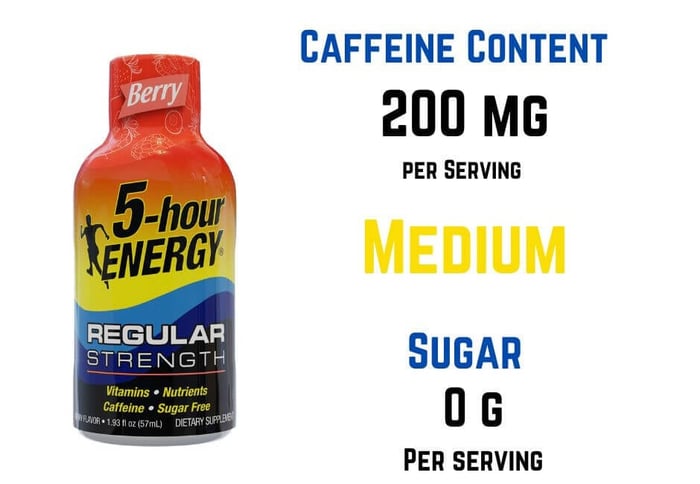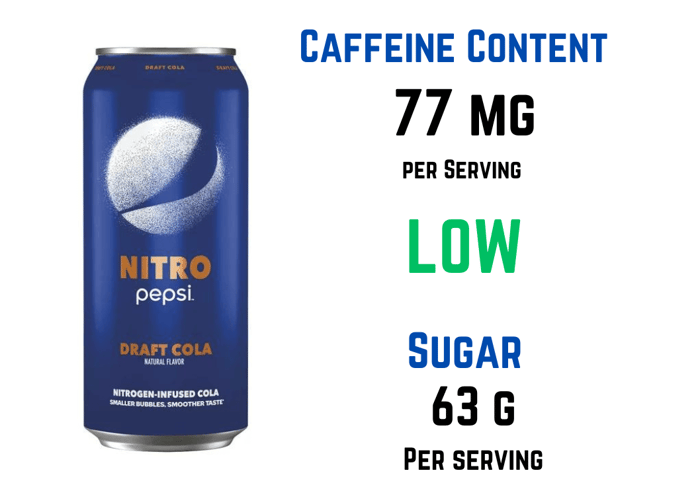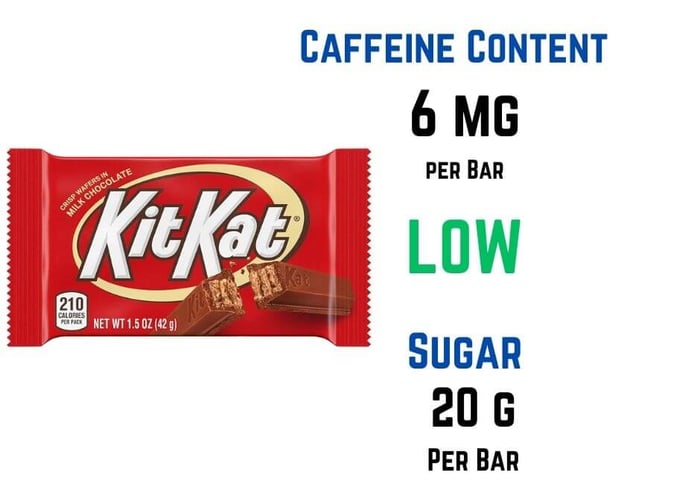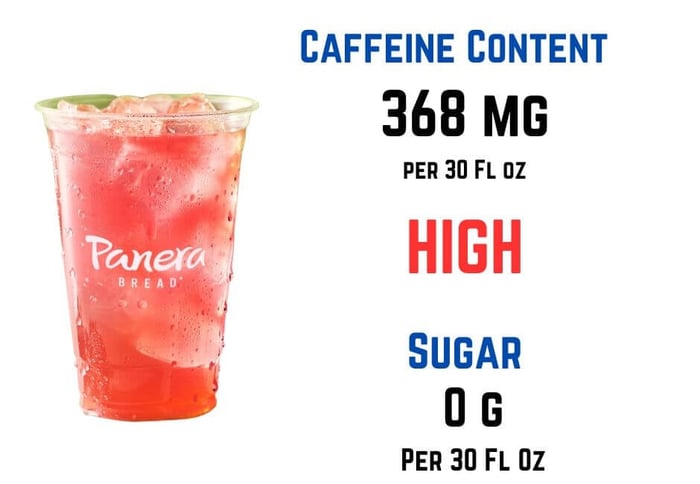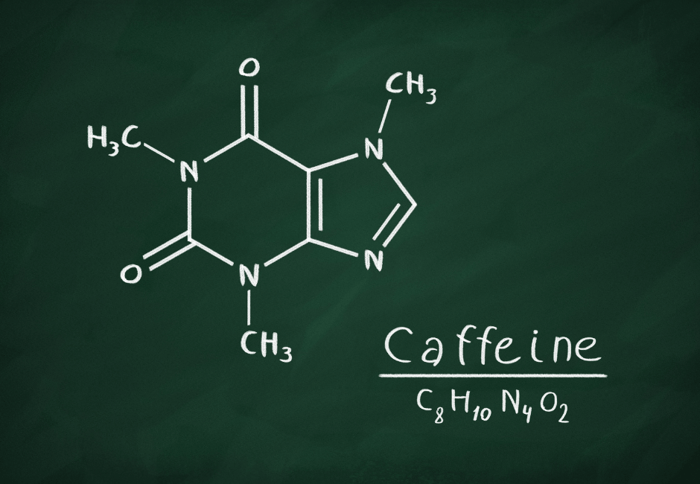Key Takeaways:
- 5-Hour Energy contains 200mg of caffeine per serving, which is equivalent to about two cups of coffee. Consumers should be cautious about consuming too much caffeine in a short period of time, as it may lead to negative side effects.
- Compared to other energy shots, 5-Hour Energy has a higher caffeine content per serving. Consumers should consider their caffeine tolerance and needs before choosing an energy-shot product.
- While 5-Hour Energy may provide a quick caffeine boost, it also contains a proprietary blend of other ingredients that may have varying effects on individuals.
Fortunately, you can now purchase all of the 5-Hour Energy flavors on Amazon.
Overview of 5-Hour Energy
5-Hour Energy is a popular energy drink that consists of caffeine and other ingredients. It is known for providing a boost of energy that lasts for several hours. The caffeine content in 5-Hour Energy is relatively high, making it a good choice for those who need a quick pick-me-up.
Additionally, it is low in calories and sugar, making it an excellent option for those looking to maintain their weight. Some unique details include the fact that it does not contain any herbal stimulants and is recommended only for adults.
To make the most of this energy drink, it is recommended to consume half the bottle at a time. This allows for a more gradual boost of energy without the risk of caffeine overload.
Amount of Caffeine in 5-Hour Energy
5-Hour Energy's Caffeine Content is one of the key factors that make it popular. A quick look at the caffeine content can help individuals understand how much boost they'll receive from a dosage.
| Energy Shot | Amount of Caffeine (mg) |
|---|---|
| 5-Hour Energy Original Flavor | 200 |
| 5-Hour Energy Extra Strength | 230 |
In terms of caffeine content, One serving of regular-strength original flavor carries around 200 milligrams, and a higher dose version goes up to 230 milligrams. Compared to other energy shots such as Monster or Redbull, which hover around similar levels for their servings.
Unique details include the effect of too much caffeine. If an individual has more than several servings in a day, excessive caffeine can lead to issues like nervousness or jitteriness.
The history behind this caffeine-induced energy booster dates back to its creation in Novi, Michigan by Manoj Bhargava. His intent was to create something that offered a more sustained energy boost while also being easily consumable. The proprietary blend with B-vitamins and amino acids alongside caffeine pioneered an entirely new market segment, one that has generated both criticism and praise over time.
Other energy shots are like a light bulb, but 5-Hour Energy is the sun shining directly into your tired eyeballs.
COMPARISON TO OTHER DRINKS
| Average Caffeine Content | MG of Caffeine |
| Black Insomnia Coffee | 1105 |
| Bang Energy | 300 |
| 5-Hour Energy | 200 |
| Red Bull | 80 |
| Coca-Cola Classic | 34 |
Comparison with other Energy Shots
Compared to other energy shots, 5-Hour Energy has a unique formula that sets it apart. Here's a breakdown of how its caffeine content and other ingredients compare.
| Brand | Caffeine Content per Serving | Other Ingredients |
| 5-Hour Energy | 200mg | Proprietary blend (taurine, glucuronolactone, malic acid, N-Acetyl L-Tyrosine, L-phenylalanine, caffeine, citicoline), vitamins and minerals (B6, B12, niacin) |
| Red Bull Energy Shot | 80mg | Taurine, glucuronolactone, caffeine, vitamins (niacinamide and pyridoxine hydrochloride), sucrose and glucose |
| NOS Energy Shot | 125mg | Maltodextrin, sugar-free sweeteners |
Compared to Red Bull's energy shot containing only 80mg of caffeine per serving. Similarly, NOS Energy Shot contains much more sugar yet less caffeine than 5-hour energy.
In case one does not prefer drinking coffee during work hours or taking other forms of stimulants hitting their bloodstream faster than ordinary caffeinated drinks, 5-hour energy is an excellent choice. Its proprietary blend consists of various amino acids that help boost energy levels without causing any unwanted jitters or crashes.
For those looking for an energy boost with minimal caffeine content, 5-hour energy is an excellent choice. Alternatively, for those with heart conditions or sensitivity to caffeine and other stimulants, it's usually recommended to consult a physician before consuming any form of energy shot.
Think your morning cup of Joe packs a punch? Wait until you see how 5-Hour Energy compares.
Comparison with Coffee
5-Hour Energy has a significantly higher caffeine content as compared to coffee. A comparison between the two beverages reveals that while a regular cup of coffee contains approximately 95mg of caffeine, one serving of 5-hour energy packs in around 200mg.
The table below compares the caffeine content in 5-Hour Energy and coffee along with their respective quantities:
| Energy Drink | Caffeine Content (mg) | Serving Size (fl oz) |
|---|---|---|
| 5-Hour Energy | 200 | 1.93 |
| Coffee | 95 | 8-ounce cup(236.5 ml) |
From the above table, it is evident that 5-hour energy provides twice the amount of caffeine than a standard cup of coffee.
It's crucial to note that excessive intake of caffeine can lead to several side effects such as an increase in heart rate, jitters, and nervousness. Therefore, individuals should consume both beverages in moderation.
Ingredients in 5-Hour Energy
When it comes to energy drinks, there's a lot of buzz about the caffeine content. In this section, we'll explore the proprietary blend of ingredients that make up 5-Hour Energy and the potential effects of this blend. We'll also take a closer look at the other non-caffeine ingredients and their respective roles in this energy drink.
Proprietary Blend and its Effects
The unique blend of ingredients in 5-Hour Energy, known as the proprietary blend, has an impact on the body's energy levels. The blend contains a combination of caffeine, taurine, glucuronolactone, and a variety of B-vitamins. This blend is designed to provide a boost of energy and mental alertness without leading to crashes or jitters that other energy drinks may cause.
The proprietary blend in 5-Hour Energy contains caffeine at a significant level, which is responsible for increasing alertness and improving focus. Other components such as taurine and glucuronolactone enhance heart functions and improve mood. Studies suggest that these ingredients work together to produce feelings of increased energy and mental clarity.
One notable aspect of the proprietary blend in 5-Hour Energy is that it's not disclosed how much of each ingredient it contains. However, consumer safety advocates have raised concerns about the unknown amounts of some elements present in this energy drink.
Pro Tip: To prevent possible health risks associated with the consumption of 5-hour energy causing adverse side effects such as headaches or elevated heart rate, individuals should adhere to the recommended dosage guidelines provided by the manufacturer.
Get ready to read a laundry list of ingredients that you've probably never heard of but are definitely in your beloved 5-Hour Energy.
Other Ingredients
The ingredients apart from the proprietary blend in 5-Hour Energy are worth considering.
| Ingredient | Amount per serving | Function |
| Niacin (vitamin B3) | 30 mg | Helps convert food into energy and maintain healthy skin, nerves, and digestion. |
| Vitamin B6 | 40 mg | Reduces fatigue, helps with cognitive function, and supports the immune system. |
| Vitamin B12 | 500 mcg | Maintains healthy blood cells, reduces fatigue, enhances cognitive function and metabolism. |
| Taurine, L-Phenylalanine, Malic Acid, L-Tyrosine, Citicoline, Bacopa Extract | N/A | Enhances cognitive performance or increases energy levels. |
We can observe that some are amino acids while others are vitamins or extracts from plants. These components work together to support specific functions such as enhancing cognitive performance or increasing energy levels.
From berry to cherry, 5-Hour Energy's got a flavor for every caffeine-induced headache.
Flavors of 5-Hour Energy
I have found that 5-Hour Energy is one of the most popular energy drinks on the market due to its promised energy boost without added sugar and calories. Its range of flavors is quite impressive, and I’ve found that this is what sets it apart from some of its competitors.
While most of the flavors contain caffeine, some seem to have higher amounts than others, leading to caffeine-induced headaches for some consumers or the sensation of being caffeine drunk.
Popular Flavors
5-Hour Energy's Variety of Flavors
There are several enticing flavors to choose from in 5-Hour Energy:
- Berry: This fruity flavor is one of the most sought-after in the lineup.
- Orange: This flavor boasts a crisp and refreshing taste that energizes and invigorates.
- Grape: Fans of grape say this flavor is particularly potent and gets you going for hours on end.
- Citrus-Lime: Tart and slightly sweet, this flavor profile will have your senses buzzing!
- Lemonade: For those who prefer something less acidic than citrus flavors, lemonade can hit the spot.
A Little History of 5-Hour Energy Drinks
5-hour ENERGY was created by Manoj Bhargava in 2003 and marketed as an alternative to coffee – combining herbal ingredients with caffeine instead of sugar and cream. Today, it has become one of America's top-selling energy drinks, finding its way into gas stations, convenience stores, pharmacies and supermarkets across the nation.
Caffeine-induced Headaches
Consuming high amounts of caffeine can lead to adverse effects such as 'neurovascular headaches'. Neurovascular headaches are commonly known as caffeine-induced headaches. These types of headaches occur when blood vessels in the brain swell or become irritated due to an excessive amount of caffeine consumption.
5-Hour Energy shots contain a considerable amount of caffeine, and if consumed beyond the recommended dosage, they may trigger caffeine-induced headaches. It is essential to monitor your intake and stay within the recommended daily limit.
Additionally, individuals susceptible to migraines or other forms of headaches must be cautious while consuming 5-Hour Energy shots. Excessive consumption or misuse can lead to severe complications and headaches.
Taking too much 5-Hour Energy might make you feel like you can run a marathon, but also give you a heart attack. So, proceed with caution.
Usage and Precautions
I've done some research on 5-Hour Energy caffeine content and I think it's important to discuss proper usage and precautions. Here, we'll explore two important aspects of using this product.
The first is recommended dosage and timing. It's important to understand the right amount to take and when to take it for optimal results.
The second is precautions and warnings. There are certain people who should avoid taking 5-Hour Energy altogether, and some side effects to be aware of. Let's take a closer look at both.
Recommended Dosage and Timing
Consumption Recommendation and Timing for 5-Hour Energy
To maintain an effective and safe consumption of 5-Hour Energy, it is crucial to understand the recommended dosage and timing.
- The recommended dose of 5-Hour Energy is half a bottle (8 ounces) for adults and one-third of a bottle (4 ounces) for children above 12 years.
- It should be consumed only when required, i.e., once within 24 hours. Overconsumption can lead to severe health issues.
- It is advisable to consume it before meals or around mid-morning or mid-afternoon as the effects last almost five hours, providing the required energy boost.
It is important to note that individual tolerances may vary based on age, weight, medical history, caffeine sensitivity, etc. Therefore, consulting a physician before taking 5-Hour Energy can provide further guidance on its safe consumption.
Pro Tip: Avoid consuming it during or close to bedtime as it may interfere with sleep quality.
Don't let the name fool you, 5-Hour Energy is not meant to be taken all at once unless you want to experience a 5-hour panic attack.
Precautions and Warnings
Consumers must take specific precautions and heed warnings when consuming 5-Hour Energy. It is advised that consumers stick to the recommended dosage and avoid consuming more than two bottles in 24 hours. Users should not mix it with other caffeinated products or alcohol. Additionally, individuals who are sensitive to caffeine, are pregnant or are under 18 years old should not use this product without consulting a physician.
It is also warned that overconsumption of 5-Hour Energy may lead to adverse effects such as anxiety, nervousness, heart palpitations, and insomnia. Consumers experiencing any of these side effects should discontinue use immediately and seek medical attention.
Moreover, there is a risk of developing caffeine-induced headaches if consumed excessively or frequently while neglecting proper hydration practices.
## Five Facts About 5-Hour Energy Caffeine Content:
Five Facts About 5-Hour Energy Caffeine Content:
- ✅ The caffeine content in a single serving of 5-Hour Energy is about 200 milligrams, which is as much as a cup of coffee. (Source: Team Research)
- ✅ 5-Hour Energy contains a proprietary blend of ingredients, including caffeine, B vitamins, and amino acids. (Source: Team Research)
- ✅ The product comes in a 1.93 fl oz bottle, which is easy to carry and consume on the go. (Source: Team Research)
- ✅ 5-Hour Energy offers several flavors, including Original, Extra Strength, Decaffeinated, and Berry. (Source: Team Research)
- ✅ 5-Hour Energy is marketed as a dietary supplement and is not recommended for people with heart conditions, high blood pressure, or pregnant or breastfeeding women. (Source: Team Research)
FAQs about 5-Hour Energy Caffeine Content
What is 5-Hour Energy?
5-Hour Energy is a brand of energy shot that is marketed as a dietary supplement. It contains a proprietary blend of ingredients, including caffeine, B vitamins, and amino acids, among others, and is designed to provide a quick boost of energy and improve mental focus.
How much caffeine is in a single serving of 5-Hour Energy?
A single serving of 5-Hour Energy contains about 200 milligrams of caffeine, which is equivalent to a cup of coffee. The product is designed to be consumed in small doses, and its compact size and easy-to-carry packaging make it a convenient option for busy individuals.
Who should avoid taking 5-Hour Energy?
5-Hour Energy is not recommended for people with heart conditions, high blood pressure, or pregnant or breastfeeding women. It is best to consult a healthcare professional before taking any supplement, especially if you have any underlying health conditions.
What is the history of 5-Hour Energy?
5-Hour Energy was first introduced in 2004 by Living Essentials, LLC. It quickly gained popularity and became one of the top-selling energy shots in the United States. In 2010, the company expanded its product line to include Extra Strength, Decaffeinated, and Berry flavors. The same year, 5-Hour Energy became the official energy shot of NASCAR.
What are the different flavors of 5-Hour Energy?
5-Hour Energy is available in several flavors, including Berry, Citrus-Lime, Grape, Pomegranate, Orange, Pink Lemonade, Decaf Citrus, Lemonade Tea, Peach Tea, Raspberry Tea, and many more. It comes in a 1.93 fl oz bottle, which is easy to carry and consume on the go.
Is 5-Hour Energy a substitute for sleep?
No, 5-Hour Energy is not meant to be used as a substitute for sleep. It is a dietary supplement designed to provide a quick boost of energy and improve mental focus. It is not intended to replace meals or to be used as a sole source of nutrition.

